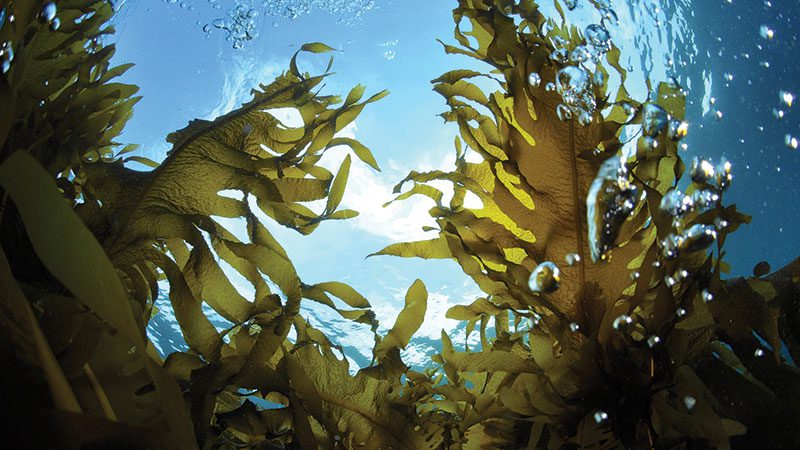Policy Report: Policy wins spring up
By Aimee Simpson
This article was originally published in July 2022

While policy work can often seem slow and incremental, this spring we saw a rewarding series of genuine wins on issues PCC has supported. Organic cows, kelp habitat and composting all benefited from these final laws and rules:
Organic Origin of Livestock
More than two years ago, PCC and many other organic allies called for immediate action from the U.S. Department of Agriculture (USDA) to fix a problematic loophole within the rules that specify how an organic cow becomes and stays organic. Vague sections of this Origin of Livestock (OOL) rule had been interpreted by some organic certifiers and producers as allowing them to sell milk as organic even if the cows had not been raised organically as intended under the rule.
The rule calls for cows to be raised organically literally before birth, from the last third of gestation. Initially, though, to encourage farmers to raise organic cows, the law had allowed a one-year process that would transition conventional herds to organic. Some certifiers and farmers—usually large-scale ones—kept this permanently in effect, saving those farmers money on the cost of raising “organic” livestock and creating an unequal playing field for producers and certifiers who raised their herds as organic from the start—a more expensive route that was the organic rule’s intention and was best for the cow, consumer and planet.
(The only transitional period organic allies support for a conventional herd would be a one-time transition during the three-year waiting period it takes for aspirational organic farmers to wait before becoming certified organic.)
While the fix wasn’t immediate, cows, consumers, and a significant portion of the organic community finally did prevail. We are happy to report that the final origin of livestock rule and long-overdue correction to the continuous transition loophole was finalized on April 5. New rules that prohibit transition of a non-organic herd after organic certification took effect June 6.
Kelp and Eelgrass Conservation
On May 30, Washington Gov. Jay Inslee signed into law a bill known as the Kelp Forest and Eelgrass Meadow Conservation Initiative. Requested by the Department of Natural Resources, sponsored by Sen. Liz Lovelett (D-Anacortes), this was one of several bills PCC supported this state legislative session. The law aims to conserve and restore at least 10,000 acres of native kelp forests and eelgrass meadows by 2040 (2SSB 5619). Significant declines in both of these aquatic plant species have been recently documented and pose additional threats to the many marine species that depend on the habitat they provide for survival, such as young salmon and shellfish.
Compost and Food Waste
Those of us living in Seattle and its surrounding area are privileged to have collection services for “organic waste” (aka plant and food waste.) According to a report conducted by Zero Waste Washington, however, this privilege does not extend to a majority of jurisdictions across the state—and that is a big problem. A U.S. Environmental Protection Agency (EPA) report published in 2021 found that each year U.S. food loss and waste embodies 170 million metric tons of carbon dioxide equivalent (million MTCO2e) greenhouse gas (GHG) emissions (excluding landfill emissions). And that doesn’t even consider methane emissions, which is a more potent GHG.
With the passage of E2SHB 1799 into law (another PCC-supported bill) and the signature of Gov. Inslee on March 25, 2022, the state now has a number of new organic waste reduction targets and requirements, including a 75% organic waste disposal target by 2030 and a 20% increase in the volume of edible food recovery by 2025, both relative to 2015 levels. (These targets are in addition to the goal of a 50% reduction of generated food waste by 2030, passed in 2019 and also supported by PCC.) The new law goes on to require certain local governments to provide composting services, beginning in 2027, and to adopt compost procurement policies and in some locations to allow for compost processing facilities. There will also be new standards for compostable product labels and colors and a creation of a Washington Center for Sustainable Food.
Aimee Simpson is PCC’s senior director of advocacy & environmental, social and governance (ESG).
